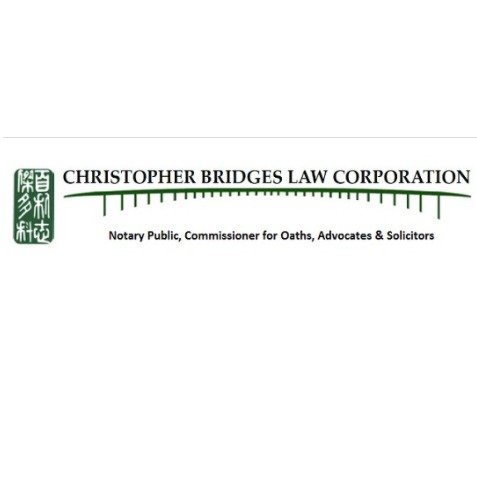Best Employment Benefits & Executive Compensation Lawyers in Alexandra
Share your needs with us, get contacted by law firms.
Free. Takes 2 min.
List of the best lawyers in Alexandra, Singapore
About Employment Benefits & Executive Compensation Law in Alexandra, Singapore
Employment Benefits & Executive Compensation law in Alexandra, Singapore, encompasses the legal frameworks and regulations related to employee benefits and remuneration for executives. These laws ensure that companies uphold fair standards and practices when providing compensation, which may include salary, bonuses, shares, retirement benefits, and other perks. This specialized area of law aims to align corporate compensation practices with local labor standards and economic policies, ensuring equitable and competitive remuneration packages for employees and executives alike.
Why You May Need a Lawyer
Individuals and companies might require legal assistance in the field of Employment Benefits & Executive Compensation for several reasons. Common situations include: negotiating executive remuneration packages, addressing disputes over benefits entitlement, ensuring compliance with employment regulations, structuring stock options or other incentive plans, and navigating tax implications of compensation arrangements. Legal expertise is crucial to effectively manage these complex issues and safeguard both employer and employee interests.
Local Laws Overview
In Alexandra, Singapore, the regulation of Employment Benefits & Executive Compensation is influenced by several key legislative frameworks. The Employment Act governs basic worker benefits, while executive compensation is often subject to contractual negotiations outside its purview. The Companies Act and Securities and Futures Act play roles in governing aspects related to stock-based compensation and disclosure requirements. Employers must also navigate the Personal Data Protection Act when handling employee information and ensure compliance with the Tripartite Guidelines on Fair Employment Practices to avoid discriminatory practices.
Frequently Asked Questions
What is the scope of the Employment Act in Singapore?
The Employment Act primarily covers basic terms of employment and benefits like salary, paid leave, working hours, and termination for employees earning below a certain salary threshold. Executive compensation often involves separately negotiated contractual arrangements.
Is there a legal cap on executive compensation in Singapore?
No, there is no legal cap on executive compensation. Companies typically decide executive pay structure based on negotiations, market standards, and governance policies.
What are the tax implications for employee stock options in Singapore?
Employee stock options can have significant tax implications. Employees are taxed on the gains from exercising stock options at their prevailing personal income tax rates, subject to specific exemptions or relief provisions.
How are disputes over compensation resolved?
Compensation disputes typically involve negotiations, arbitration, or litigation. Seeking legal advice early can facilitate a fair resolution and ensure adherence to contractual obligations and regulatory requirements.
Are bonuses considered part of basic salary?
Bonuses are generally excluded from basic salary computations unless explicitly specified in the employment contract. They are typically performance-based and discretionary.
What is the role of the Ministry of Manpower regarding employment benefits?
The Ministry of Manpower (MOM) oversees labor policies, including the legality and administration of employment benefits in Singapore, ensuring compliance with labor standards.
How can employers ensure compliance with employment laws?
Employers should regularly review compliance with local laws, seek legal counsel for clarity, and follow the Tripartite Guidelines on Fair Employment Practices to ensure their compensation practices are legally sound.
Can executive compensation packages be structured flexibly?
Yes, executive compensation packages can be tailored to include a mix of salary, bonuses, stock options, and other incentives, keeping in mind compliance with legal standards and tax regulations.
What protections exist for employees regarding unfair dismissal related to compensation disputes?
The Employment Act provides remedies for unfair dismissal, and employees can seek redress through the Employment Claims Tribunals or relevant legal channels.
Are retirement benefits legally mandated in Singapore?
While there is no legal mandate for private company-provided retirement benefits, the Central Provident Fund (CPF) system serves as a primary retirement savings scheme compulsory for all workers.
Additional Resources
For more information, individuals can consult the Ministry of Manpower (MOM) for resources on employment standards. The Singapore National Employers Federation (SNEF) and the Law Society of Singapore also offer guidance and resources on compensation and employment law. Engaging with qualified legal professionals specializing in employment law is advisable for tailored advice and solutions.
Next Steps
If you need legal assistance regarding Employment Benefits & Executive Compensation in Alexandra, Singapore, consider contacting a lawyer who specializes in employment law. Prepare documentation of your employment agreement and any relevant communications relating to compensation or benefits disputes. Attend consultations prepared to discuss your situation thoroughly, and explore your options for negotiation, mediation, or litigation as necessary. It is also beneficial to keep abreast of changes in local employment regulations to anticipate potential impacts on compensation practices.
Lawzana helps you find the best lawyers and law firms in Alexandra through a curated and pre-screened list of qualified legal professionals. Our platform offers rankings and detailed profiles of attorneys and law firms, allowing you to compare based on practice areas, including Employment Benefits & Executive Compensation, experience, and client feedback.
Each profile includes a description of the firm's areas of practice, client reviews, team members and partners, year of establishment, spoken languages, office locations, contact information, social media presence, and any published articles or resources. Most firms on our platform speak English and are experienced in both local and international legal matters.
Get a quote from top-rated law firms in Alexandra, Singapore — quickly, securely, and without unnecessary hassle.
Disclaimer:
The information provided on this page is for general informational purposes only and does not constitute legal advice. While we strive to ensure the accuracy and relevance of the content, legal information may change over time, and interpretations of the law can vary. You should always consult with a qualified legal professional for advice specific to your situation.
We disclaim all liability for actions taken or not taken based on the content of this page. If you believe any information is incorrect or outdated, please contact us, and we will review and update it where appropriate.








